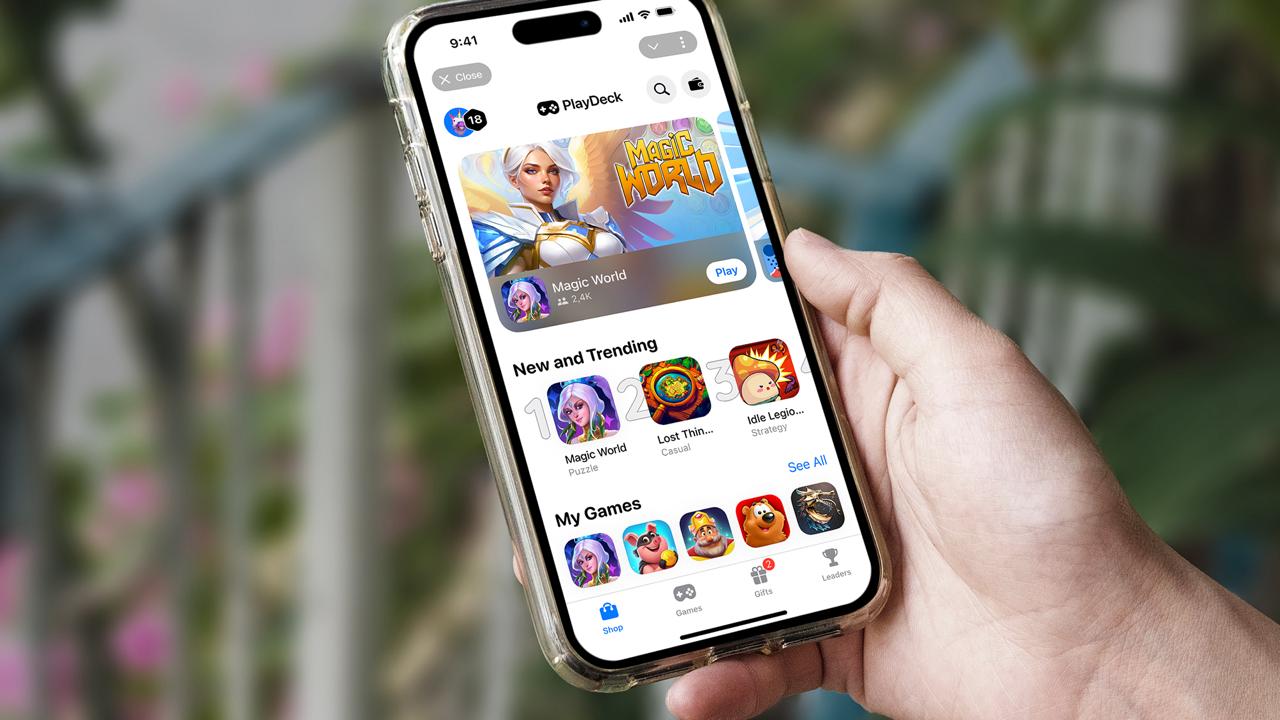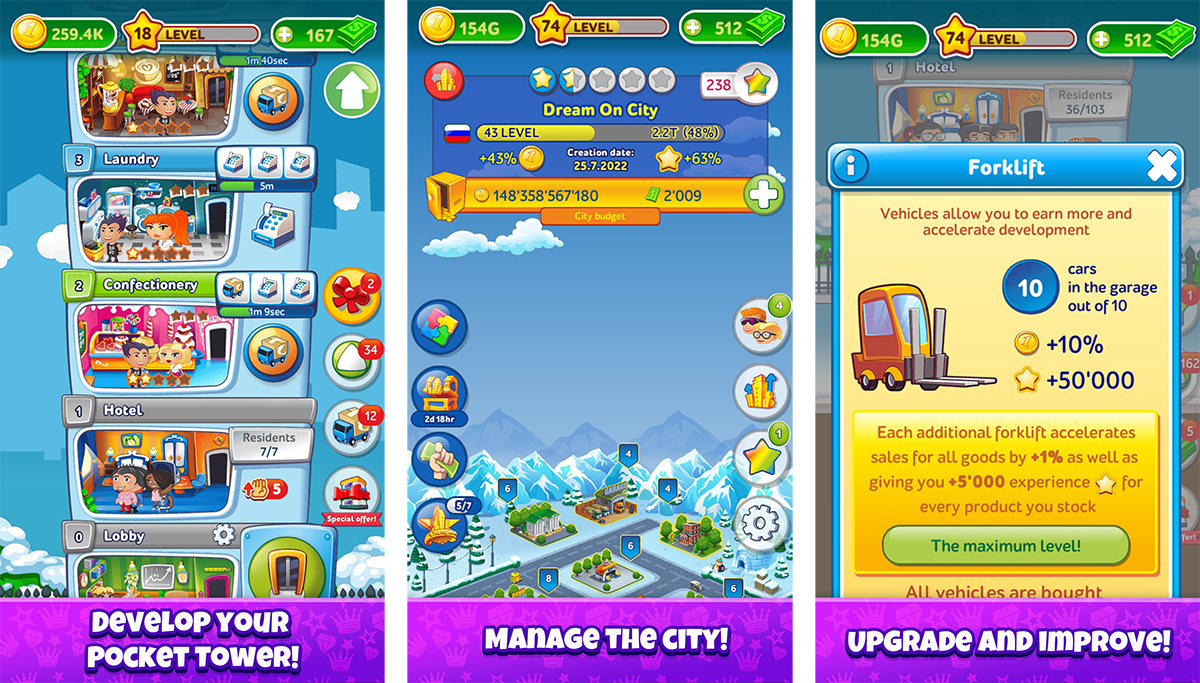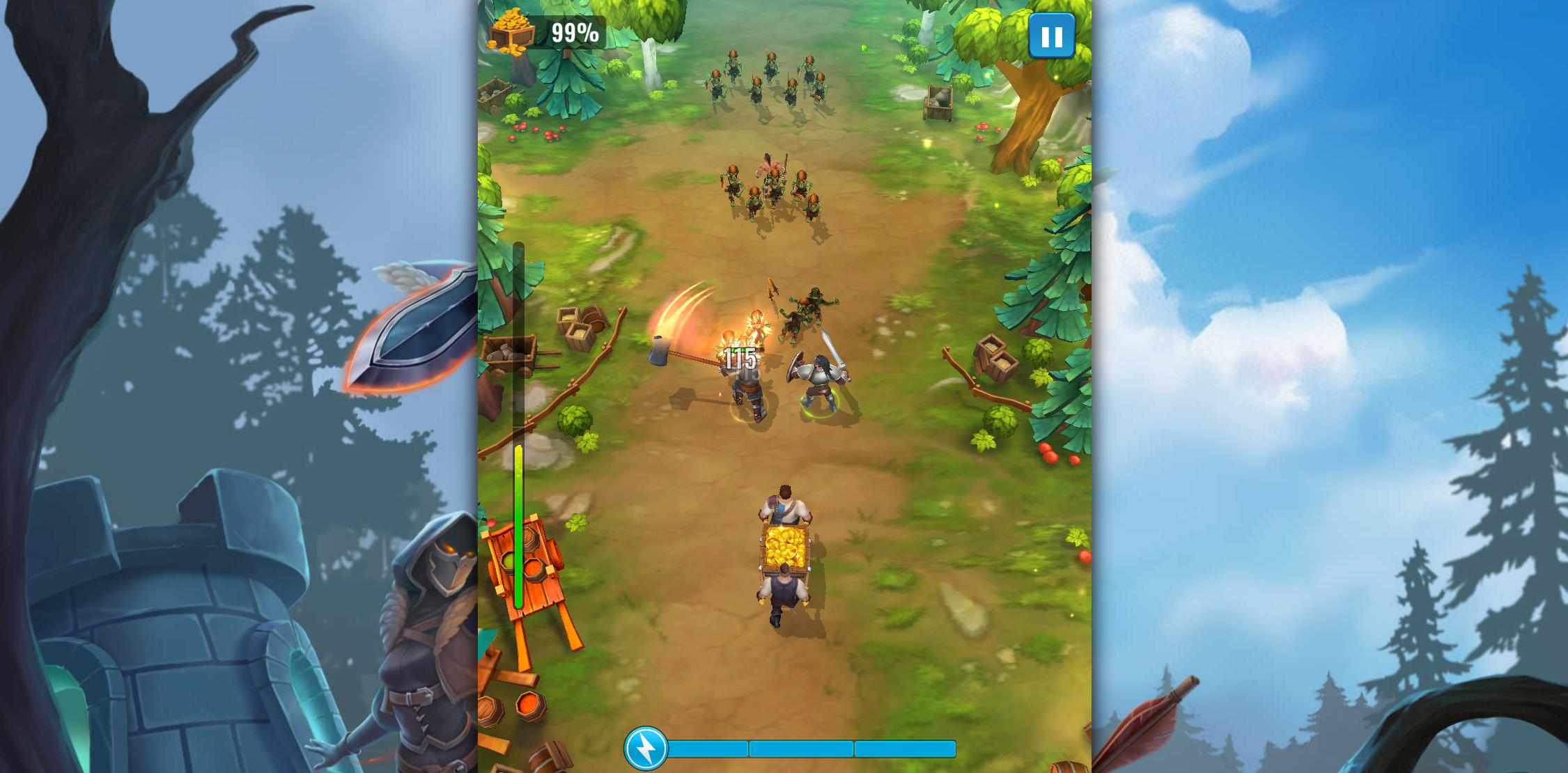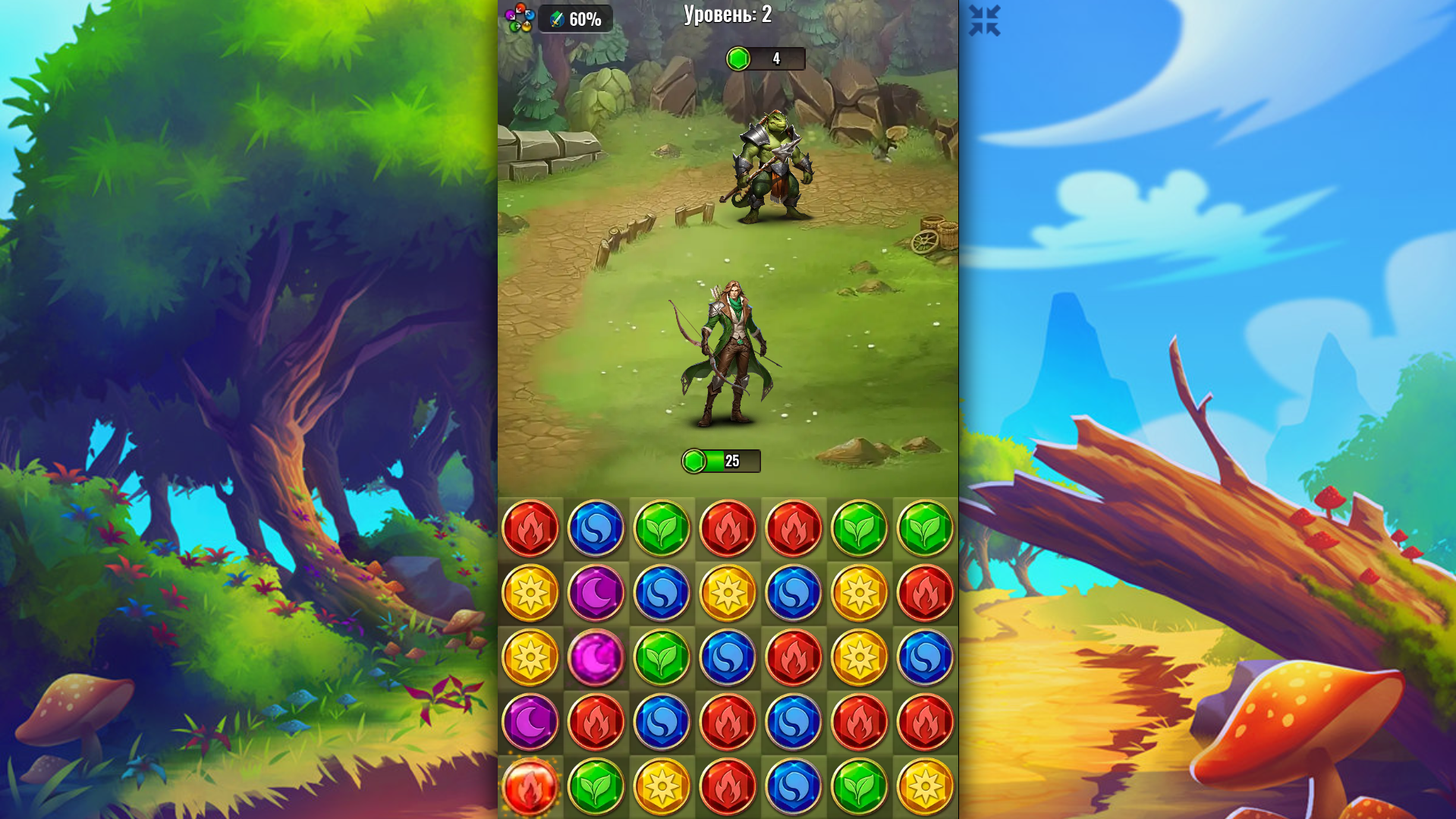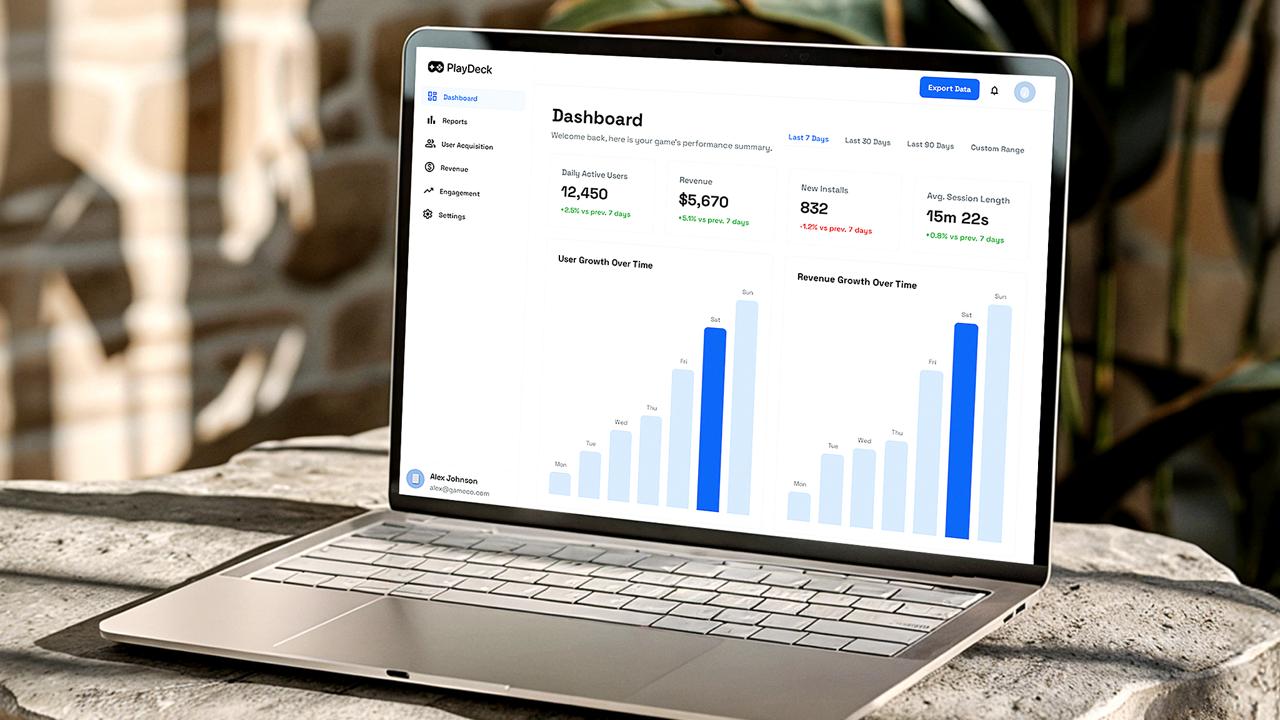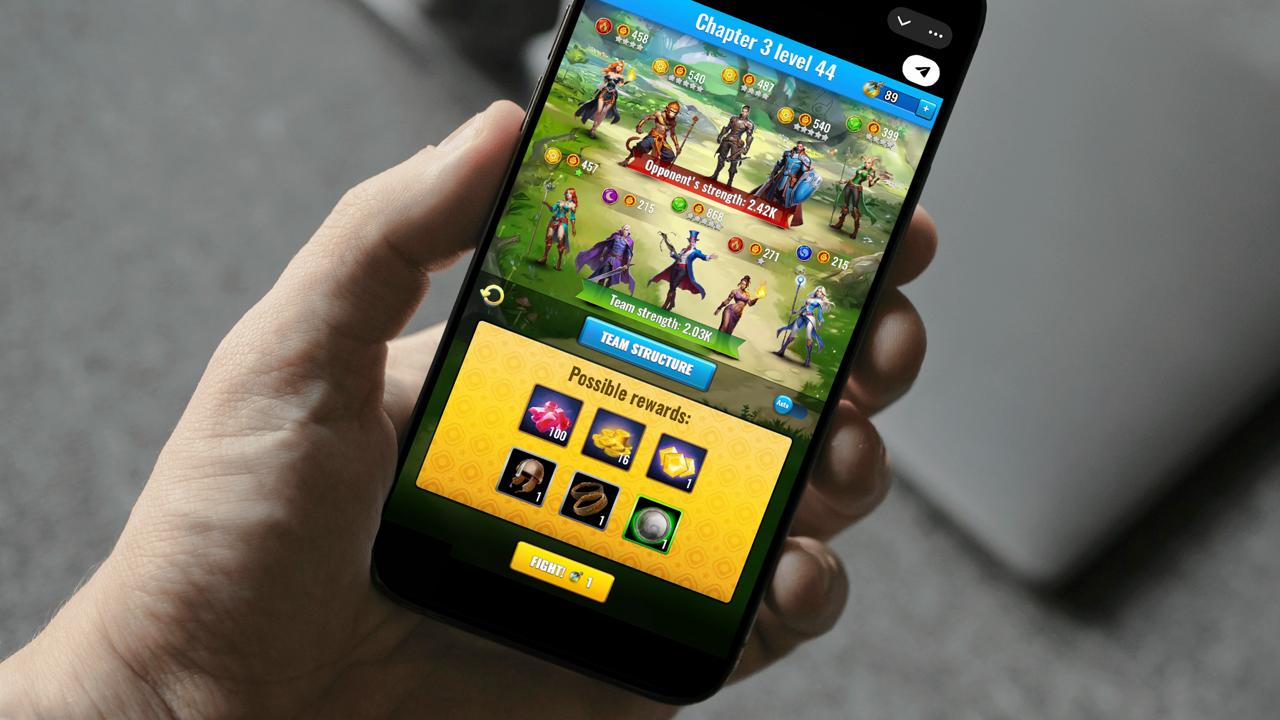How Overmobile Earned Its First 100 Thousand Dollars on Telegram Games in Collaboration with PlayDeck
Yan Yankelowitz, the Business Development Director of Overmobile, shared insights on launching and operating a free-to-play game on Telegram.
Yan Yankelowitz
What Overmobile Does
Overmobile has been in the market for about 18 years. We are based in Novosibirsk.
At the dawn of mobile internet, our team developed projects for WAP portals and feature phones that ran on Symbian and J2ME. Over time, we moved to browser games, then projects for mobile platforms iOS and Android, and eventually transitioned to launching projects in HTML5 ecosystems.
We have succeeded in creating game services. Our projects last for 5-10 years. The oldest one is soon turning 14, continuously receiving new content, and its community is still growing.
Historically, we have primarily focused on MMORPGs with an emphasis on PvP. Our games feature clans, player confrontations, boss battles, and status competitions.
When discussing flagship titles, it’s impossible not to mention "Dream Skyscraper." This was our first mobile project, released in 2015, and it remains popular. It also operates under a service model.
"Dream Skyscraper"
One of our major recent projects is the battler Raid&Rush. It’s a large project focused on hero collection, monster battles, and arena combat.
Raid&Rush
The main audience for our games is in Russia and the CIS, but we also have significant communities in Poland, Germany, and the UK.
How PlayDeck Helped Overmobile Release Games on Telegram
Our debut project on Telegram was the role-playing match-three "Magic World." Despite being newly launched on the messenger, it was already a solid project with clans, bosses, and a wealth of content.
"Magic World"
We understood the platform’s advantages and its specificities. On one hand, the messenger offers a short path to the user—simply open the chat, and the player is within the ecosystem and can easily join the game. On the other, unlike social networks with a separate game section and a familiar storefront, in the messenger, this functionality is distributed across bots and mini-apps.
Due to these specifics, we decided to enter Telegram not on our own, but by utilizing the services of PlayDeck, which took on the role of a traditional publisher within the platform with the necessary technological stack enabling game publishing and monetization, as well as traffic attraction.
As a result, we didn't need to figure out the platform ourselves, deal with impersonal support, determine benchmarks, or try to understand how to build an audience for the project and what's possible in terms of optimization and marketing campaigns.
The launch process was greatly simplified, and the integration itself took only a few days. PlayDeck reviewed the product, helped us create an account in the internal admin panel, and practically guided us through the integration process with instructions and tips. This primarily involved connecting the internal wrapper, which opens access to Stars payments, ad mediation, product and marketing analytics.
The first $10,000 was earned by "Magic World" in two months, with an ARPPU of over $50. To date, the project has generated over $100,000 since its release.
The success of "Magic World" is tied to PlayDeck's ability to find appropriate traffic and audience for the project. The combination of casual mechanics and PvP was a perfect fit for the young audience active in Telegram’s gaming channels. Additionally, we noticed that messenger users show interest in midcore projects, which they play for longer and are willing to spend money on.
Thanks to this, we now see Telegram not as an experimental channel where games launch via bots, but as a full-fledged platform for our free-to-play titles. Currently, with PlayDeck's support, we are operating three projects on the messenger.
Operational Setup and Platform Interaction
Telegram offers a very limited set of promotional tools, so it’s vital to be proactive and regularly remind users about the game. PlayDeck handles this task by attracting users, providing featuring on its storefront, and using available reminder mechanisms.
Here is how it usually works:
- before a new update—released regularly—Overmobile prepares materials in advance (graphics, descriptions, key messages);
- then, the additional traffic boost process and update marketing support are discussed with PlayDeck;
- PlayDeck highlights the update release for the game, which can be released not just as part of its catalog but as a separate application;
- the game receives two streams: new users and a wave of re-engaged users from the existing base.
After that, it all boils down to retention: we have extensive experience supporting long-running services, which is critical here.
Another important nuance: the game offers cross-play across different platforms—Telegram players can be in the same clan with users from VK or Yandex Games. The gaming experience is the same across all platforms, differing mainly in authorization windows and payment tools.
Growth Factors
With "Magic World," audience growth was gradual—step by step, without an instant surge in popularity. Large content updates worked best, attracting new users and bringing back old ones. Annual events—like New Year, the game’s anniversary, and other calendar holidays—traditionally boost interest: the audience is more receptive to themed activities and discounts, and regular players return to not miss out on seasonal events.
Gradually, the content base increases, making it easier for the project to retain new audiences. This structure allows accumulation of a user base, reaching significant metrics on Telegram. We managed to earn over $100,000 not through a single successful promotion but through sustained, targeted efforts.
Characteristics of the Telegram Audience
On average, Telegram users are younger than the usual social media audience, where it’s easier to reach adult paying players. Because of this, projects in Telegram are better considered as a long-term investment for the future.
The Telegram audience also exhibits different behavior: people comment more often, are more willing to react, and move discussions from the game to external chats and mini-communities.
"Magic World" has its own community on Telegram, and engagement there is higher than on feeds in other social networks. For a long-term strategy, this is a crucial layer: discussions around the game keep the brand in circulation, provide organic entry points for friends and acquaintances, and create a context in which it is easier to announce events, heroes, and updates.
Changes with the Introduction of Stars
The introduction of the Stars currency in Telegram allowed developers to normalize payments within the messenger ecosystem. It provided a unified, user-friendly currency with a standard payment scenario, and developers now have predictable rules and stable access to payments.
This foundation made monetization easier: linking in-game purchases with promotions and events, working with repeat payments, and returning players through storefronts and communications. Simultaneously, it opened up opportunities for experiments with the TON system, enabling meaningful trials with open economy models.
Long-term Prospects and Ecosystem Evolution
For Overmobile, launching projects on Telegram is a long-term investment. The studio's games have users who have been returning for many years. Therefore, if we can keep our audience focused and continue to expand the service within the messenger, part of the current audience will grow with the game.
This approach is supported by the ecosystem’s dynamics: we observe new quality projects emerging on Telegram, PlayDeck driving more traffic, payments increasing, and, most importantly, the quality of the audience improving, meaning people stay longer and return more eagerly.
In an ideal vision of the future, Telegram would develop a clearer game showcase and social features for engagement, and the messenger’s native functions, such as gifting, would connect to in-game entities. In such a setup, even an open economy could gain new momentum: users could gift or purchase entities within the messenger ecosystem, with their value and functionality naturally transitioning into the game.
***
Overmobile has brought its familiar service approach to a new environment—Telegram. PlayDeck took on the role of publisher, provided the technical interface, offered featuring and traffic, and aided with communication.
This partnership has already led Overmobile to revenue of $100,000. We’re confident that it’s a good starting point for further growth—as the audience matures and the Telegram ecosystem becomes clearer.
For us, the messenger is a full-fledged platform where it makes sense to build long-term relationships with players and strategically test new payment and social tools.
